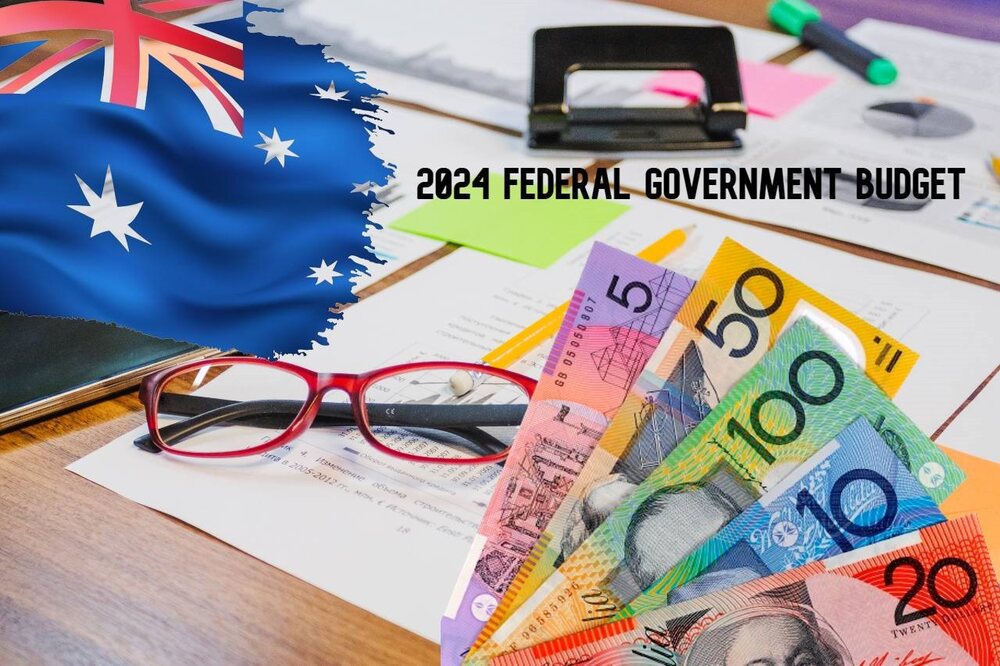In the latest Federal Budget, the Albanese Government has introduced several measures aimed at supporting small and medium-sized businesses, encouraging foreign investment, and improving compliance.
As a business owner, it’s important that you understand how these changes may affect your operations and financial planning.
Let’s discuss the key announcements and their potential impact on your business.
Extension of the Instant Asset Write-Off
One of the most significant measures for small businesses is the extension of the $20,000 instant asset write-off until 30 June 2025. This incentive allows eligible businesses with an aggregated turnover of less than $10 million to claim an immediate deduction for individual assets costing up to $20,000, provided they are installed and ready for use by the deadline.
The extension of this incentive offers several benefits for small business owners:
- Improved cash flow – By claiming an immediate deduction, you can reduce your taxable income and boost your cash flow in the short term.
- Accelerated asset upgrades – The write-off encourages businesses to invest in new equipment, technology, or vehicles, which can enhance productivity and competitiveness.
- Simplified tax compliance – Claiming the deduction is straightforward, reducing the administrative burden associated with depreciating assets over multiple years.
However, it’s important to note that the previous extension for the 2024 financial year is still awaiting approval from the House of Representatives, as the Senate has amended the bill to increase the incentive to $30,000.
For assets valued over $20,000, small businesses can still benefit by placing them in the simplified depreciation pool, where they will be depreciated at 15% in the first year and 30% each subsequent year.
With the extension of the instant asset write-off, now is an opportune time to consider investing in assets that can help grow and improve your business operations. Keep an eye on the potential increase to a $30,000 threshold, which could provide even greater benefits.
Streamlining Foreign Investment
The Federal Government has also announced reforms to realign the Foreign Investment Review Board (FIRB) priorities and approval framework. This initiative aims to enhance foreign investment in Australia while ensuring investors pay their fair share of tax.
Key changes to the FIRB framework include:
- Greater scrutiny of complex arrangements, intragroup transactions, and financing structures that may be used to avoid withholding tax obligations.
- A streamlined review process for low-risk investments, with the goal of processing 50% of proposals within 30 days by January 2025.
- Refunding of application fees for unsuccessful applicants in competitive bid processes.
- Enhanced recognition for prior applications with unchanged ownership structures.
- Authorisation for employers to buy established residential properties for specific classes of workers to support labour supply.
For businesses seeking foreign investment or engaging in cross-border transactions, these reforms present both opportunities and challenges:
Opportunities | Challenges |
Faster approval process for low-risk investments | Increased scrutiny of complex arrangements |
Potential for increased foreign capital inflows | Higher compliance costs for intragroup transactions |
Level playing field for domestic and foreign investors | Possible delays for high-risk or complex investments |
It’s essential that you familiarise yourself with the new FIRB framework and work closely with your legal and tax advisors to ensure compliance and optimise your investment strategies. While sensitive sectors may face increased scrutiny, low-risk investments should benefit from expedited review processes and easier repeat applications.
Changes to Foreign Resident Capital Gains Tax Regime
From 1 July 2025, the Federal Government will introduce amendments to the Foreign Resident Capital Gains Tax regime, which will impact foreign residents divesting or selling capital assets that trigger a CGT event. These changes include:
- Clarifying and broadening the types of assets subject to Capital Gains Tax
- Amending the point-in-time principal asset test to a 365-day testing period for indirect Australian real property interests
- Requiring foreign residents disposing of shares (valued over $20 million) to notify the ATO prior to executing the transaction
These integrity measures aim to ensure that both direct and indirect sales of assets with a close economic connection to Australian real property are aligned with the tax treatment for Australian residents and are in line with OECD standards and tax laws in overseas jurisdictions.
If you have foreign interests or are planning to divest assets as a foreign resident, review these changes carefully with your tax advisors. Ensure that your business is prepared to comply with the new reporting requirements and understand the potential tax implications of any future divestments.

Expansion of General Anti-Avoidance Provisions
The Budget also includes measures to amend and expand the general anti-avoidance provisions in Part IVA to capture schemes that result in reduced Australian tax via lower withholding tax rates on income paid to foreign residents, as well as schemes that achieve an Australian tax benefit even when the dominant purpose is to reduce foreign income tax.
These changes are aimed at preventing multinational taxpayers from gaining an Australian tax benefit through “treaty shopping” or altering income classifications to access lower withholding rates.
If your business has international structures or arrangements, work with your tax advisors to review these setups in light of the expanded anti-avoidance provisions. Ensure that your business is not inadvertently falling foul of these new rules and make any necessary adjustments to maintain compliance.
ATO’s Tax Compliance Programs Extended
The Federal Government has announced additional funding to extend the operation of the following ATO tax compliance programs:
ATO Tax Compliance Program | Extension Period |
Tax Avoidance Taskforce | Additional 2 years (2026-27 & 2027-28) |
Personal Income Tax Compliance Program | Additional 12 months (2027-28) |
Shadow Economy Compliance Program | Additional 2 years (2026-27 & 2027-28) |
With the increased funding, it’s more important than ever to ensure your business has robust tax governance and risk management processes in place. Engage with tax professionals to review your tax control framework, identify any areas for improvement, and ensure you are well-prepared in the event of an ATO audit or review.
Cost of Living Relief and Inflation Control
The 2024 Federal Budget also focuses on delivering cost-of-living relief and controlling inflation. Some key measures include:
- Stage 3 tax cuts for all Australian taxpayers earning over $18,200 each year from 1 July 2024
- $1.1 billion in funding over four years to pay superannuation on government-funded Paid Parental Leave
- $300 energy rebate for every household on their electricity bills
- Up to 10% boost to the maximum rates of Commonwealth Rent Assistance
While these measures are primarily aimed at individuals, they may indirectly benefit your business by increasing consumer spending power and reducing financial stress on your employees.
Supporting Innovation and Manufacturing
The Budget introduces the $22.7 billion “Future Made in Australia” package, which aims to build Australia’s potential in renewable energy, enhance resource value, and boost economic security by attracting investments in key sectors. This initiative includes:
- A dedicated Act and a National Interest Framework to prioritise industries and ensure responsible and targeted investments
- $6.7 billion production tax incentive for the production of renewable hydrogen
- $1.7 billion to promote net zero innovation, including for green metals and low-carbon fuels
- $1.5 billion to strengthen battery and solar panel supply chains through production incentives
These measures present opportunities for businesses involved in renewable energy, sustainable manufacturing, and related sectors. By leveraging these incentives, you may be able to expand your operations, develop new products or services, and contribute to Australia’s transition to a low-carbon economy.
Investing in Skills and Workforce Development
Finally, the Budget allocates $1.1 billion to reform higher education and deliver a skilled workforce for the future. This includes the implementation of a new National Innovation visa to attract and retain highly skilled individuals in priority industries.
As a business owner, access to a talented and skilled workforce is essential for growth and competitiveness. The government’s investment in education and workforce development may help you attract and retain the right talent for your organisation, particularly in emerging or specialised fields.
Stay Informed and Adapt to the 2024 Federal Government Budget
The latest Federal Government Budget has introduced a range of measures that will impact Australian businesses in the coming years. From the extension of the instant asset write-off to the continuation of ATO tax compliance programs, business owners must stay informed and adapt their strategies accordingly.
You can position your organisation for success in the coming years by understanding the implications of the Budget announcements and aligning your business plans with the government’s priorities.
For tailored advice on how these changes could benefit your business, contact our Gold Coast Accounting Firm KeyPoint Accountants at 07-5585-0600 or info@keypointaccountants.com.au. We deliver excellence in accounting and strategic advice to help your business grow and position you for long-term success.













